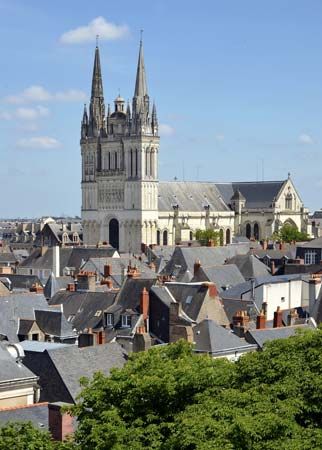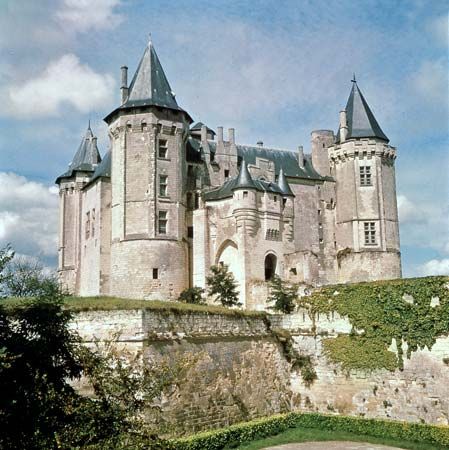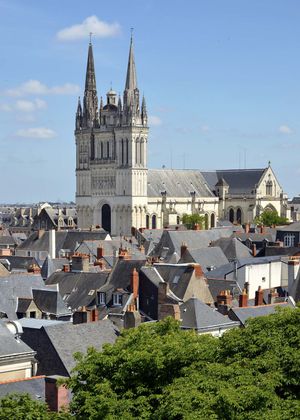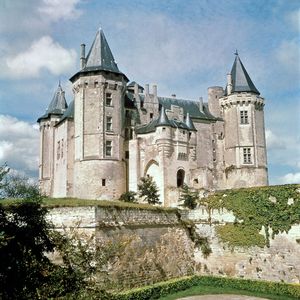Pays de la Loire
Pays de la Loire, région of France encompassing the western départements of Mayenne, Sarthe, Maine-et-Loire, Vendée, and Loire-Atlantique. Pays de la Loire is bounded by the régions of Bourgogne-Franche-Comté to the northwest, Normandy to the north, Centre to the east, and Nouvelle-Aquitaine to the south. The Bay of Biscay in the Atlantic Ocean lies to the west. The capital is Nantes.
The Massif Armoricain extends into the départements of Mayenne and Loire-Atlantique and the northern fringes of Vendée and Maine-et-Loire. Sarthe and eastern Maine-et-Loire belong to the Paris Basin. The massif of Vendée rises in the south. Two ancient massifs rise in the north, where elevations reach 1,115 feet (340 metres) in the picturesque Perseigne Forest. The Loire River flows east to west across the région. Other important waterways include the Vilane, Erdre, Maine, Mayenne, and Sarthe rivers. An oceanic climate prevails.
The population of Pays de la Loire remained static between 1851 and 1946, in contrast to the general trend of rural population loss in France during this period. Population has subsequently grown, the result of both migrational and natural increase. Demographic recovery has favoured the Loire River valley between Saumur and Saint-Nazaire, particularly the metropolitan areas of Angers and Nantes. Rural depopulation accompanied by an aging of the population has depleted the countryside of inland Vendée, northern Maine-et-Loire, and Mayenne and Sarthe outside Laval and Le Mans. Despite the growth of the région’s urban centres, much of Pays de la Loire retains a rural character, with a significant proportion of the population living in small towns and villages.
Animal husbandry dominates agriculture, and the région is a leading producer of milk, beef, pork, and poultry. Dairy farming is particularly important along the région’s western fringes in Mayenne and Loire-Atlantique. Fishing ports include La Tourballe and Le Croisic in Loire-Atlantique and Les Sables-d’Olonne in Vendée.
Soils in the région tend to be acid and heavy, and lime and fertilizers are widely used. Viticulture is concentrated around Saumur and Angers and in Loire-Atlantique to the south of Nantes, where muscadet, a dry white wine, is produced. Cereals (wheat, corn [maize], and barley) are increasingly cultivated, especially in the eastern part of the région, often for use as animal feed.
Pays de la Loire has a diversified industrial structure. Food and beverage processing represents a major sector of activity, reflecting the importance of agricultural production. Certain traditional branches of industry (shipbuilding, clothing and shoe manufacturing) are now in decline, but the slack has been taken up by the manufacturing of vehicles and vehicle components and plastics. The development of electronics, robotics, telecommunications, and aeronautical industries has also been important. Employment in the service sector has grown rapidly, stimulated by the relocation of certain activities of Paris-based banks and insurance companies. The major urban centres (Nantes, Angers, Le Mans, and Saint-Nazaire) have benefited from these developments. A number of smaller towns such as Cholet, Laval, and La Roche-sur-Yon have also become key industrial centres.
The coastal areas of the région boast a number of popular tourist resorts such as Les Sables d’Olonne in Vendée, which is said to have one of the finest stretches of sand in France. The 17-mile (27-km) strip of coast south of the Loire estuary, known as Côte de Jade because of the green colour of the sea, is also dotted with tourist resorts. The world-famous Le Mans Grand Prix, an annual 24-hour sports car race, draws huge crowds each year. The région is served by a Paris-to-Nantes motorway and by high-speed train (train à grande vitesse; TGV).
Pays de la Loire was one of the sites of the counterrevolutionary peasant uprisings known as the Wars of the Vendée (1793–96). Conscription acts sparked the first uprising in Vendée, and unrest spread to neighbouring départements. Area 12,387 square miles (32,082 square km). Pop. (1999) 3,222,061; (2014 est.) 3,690,659.



















